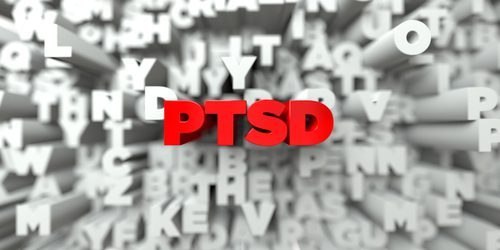
Five Types of PTSD
Many people will experience trauma in their lives. Out of those many people, most will develop some sort of symptom of having experienced trauma. Few will fully develop a diagnosis of post-traumatic stress disorder. PTSD is a complex mental illness that can cause thoughts of suicide, depression, anxiety, and many more issues. Identifying PTSD can be difficult for loved ones to do because there are different types of ways PTSD presents.
- Normal Stress Response: A form of PTSD where you are exposed to a traumatic event and you experience emotional numbing, bad experiences, cutting yourself off from people, dissociative feelings, physical tensions and distress. This type of PTSD can be treated within a few weeks. Group discussions can be helpful in treating normal stress response by discussing the emotional responses, symptoms, and coping techniques.
- Acute Stress Disorder: A type of PTSD where the symptoms can last three days to a month after the trauma of seeing or experiencing a threat, serious injury, death, or a physical violation to yourself or others. Symptoms involve not being able to experience love or happiness, distressing thoughts, not being able to concentrate, being in a daze, trouble sleeping, irritable behavior, and avoiding anything that is associated with the trauma. Cognitive Behavioral Therapy can be helpful in changing negative thought patterns and changing the behaviors in anxiety situations. Therapeutic interventions after the traumatic event occurs can help patients talk out what happened. Doctors can also prescribe medications for anxiety.
- Uncomplicated PTSD: A form of PTSD that involves constantly re-experiencing the traumatic event, emotional numbing, avoiding stimuli associated with the trauma, and increased arousal. These symptoms can occur for an extended period of time as it is hard to get the images out of your head. Group therapy, psychodynamic therapy, Cognitive Behavioral Therapy, and medications can be helpful in treating this type of PTSD.
- Comorbid PTSD: This type of PTSD is a co-occurring disorder and is the most common type of PTSD. It occurs in those with a pre-existing mental condition like depression, panic disorder, alcohol or substance abuse, and other types of anxiety disorders. It is best to have both the mental disorder and PTSD be treated at the same time instead of one after the other.
- Complex PTSD: A type of PTSD that occurs in those who have experienced constant traumatic events for a long period of time such as being in war, being sexually or emotionally abused. They show behavioral problems like aggression, impulsivity, self-destruction actions, fragmented thoughts and substance abuse. Because a patient could be dealing with weeks, months, or years of abuse, treatment can take much longer with new behavioral and coping skills. In-patient care can keep you away from any triggers that remind you of the event. Treatment options include group therapy, emotion-focused therapy, Cognitive Behavioral Therapy, EMDR, and psychodynamic therapy.
Cottonwood Tucson is an inpatient holistic behavioral health treatment center and addiction rehab. Cottonwood’s PTSD treatment plan involves group therapy, Cognitive behavioral therapy (CBT) and Eye Movement Desensitization and Reprocessing (EMDR) in order for patients to recall traumatic events with less emotional resonance. For more information, call us today at (888) 727-0441.







